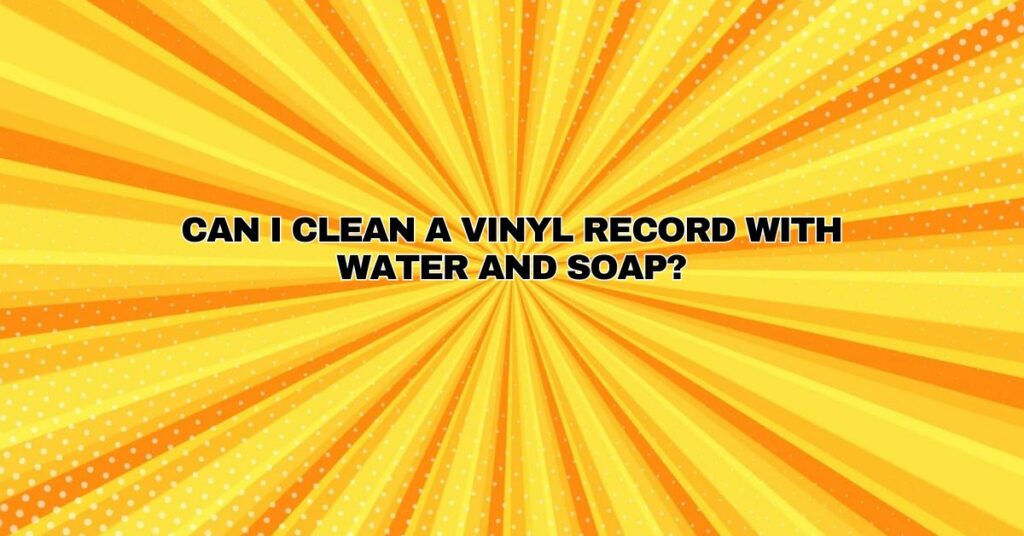Vinyl records, revered for their analog warmth and immersive sound, have made a significant resurgence in recent years. Vinyl enthusiasts and collectors are keen on maintaining their records’ quality and longevity through proper care and maintenance, including cleaning. While there are various methods and cleaning solutions available, the idea of cleaning vinyl records with water and soap has sparked debate within the vinyl community. In this comprehensive article, we will explore the suitability of using water and soap for vinyl record cleaning, potential risks and drawbacks, and alternative cleaning solutions that are safer and more effective. Whether you’re an experienced vinyl collector or just beginning to explore the world of analog audio, understanding the implications of using water and soap on your records is crucial to preserving their sound quality.
1. The Importance of Cleaning Vinyl Records
Cleaning vinyl records is a vital aspect of vinyl record care, serving several essential purposes:
- Dust and Debris Removal: Records accumulate dust, dirt, and microscopic particles over time, which can lead to surface noise and affect sound quality.
- Static Reduction: Reducing static electricity helps prevent dust and debris from adhering to the record surface.
- Surface Cleaning: Cleaning removes fingerprints, oils, and smudges left by handling, ensuring a smooth and uninterrupted stylus glide.
2. Can You Clean Vinyl Records with Water and Soap?
Using water and soap for vinyl record cleaning is a topic of contention within the vinyl community, and there are several reasons for this:
- Potential Residue: Soap, even mild and residue-free varieties, can leave behind a film or residue on the record surface. This residue may affect sound quality and stylus performance.
- Risk of Water Damage: Water can seep into the record’s grooves and potentially cause damage or warping, particularly if the record label is not fully sealed.
- Sound Quality Impact: Using water and soap may result in a noticeable decrease in sound quality, including increased surface noise and distortions.
- Stylus Concerns: Residue or soap film left on the record surface can accumulate on the stylus (needle), potentially leading to tracking errors and damage to both the stylus and the grooves.
3. Alternative Cleaning Solutions
To ensure safe and effective cleaning of your vinyl records, consider alternative cleaning solutions and methods that are specifically designed for this purpose:
- Record Cleaning Solutions: Specialized record cleaning solutions are formulated to remove dirt and contaminants without leaving a chemical residue. They are available in various formulations, including alcohol-free options for sensitive records.
- Carbon Fiber Brushes: Anti-static carbon fiber brushes are excellent for dry cleaning and dust removal. They are a safe and effective option for routine maintenance.
- Record Cleaning Machines: Professional-grade record cleaning machines use a combination of cleaning solution and vacuum suction to deep-clean records without leaving residue. These machines are efficient but may be costly.
4. Conclusion
Cleaning vinyl records with water and soap is a controversial and debated approach within the vinyl community. Due to the potential risks of residue, water damage, and sound quality impact, it is generally not recommended for cleaning vinyl records. To ensure safe and effective cleaning of your records, it is advisable to use purpose-designed record cleaning solutions and methods that are specifically engineered for vinyl record maintenance.
By following best practices for record cleaning and using suitable cleaning solutions and tools, you can enjoy your vinyl collection with optimal sound quality and protect your valuable records for years to come. The pursuit of pristine sound is best achieved through vinyl record cleaning methods that prioritize the preservation of your vinyl’s quality and longevity.


